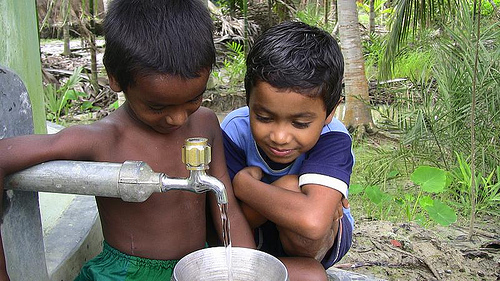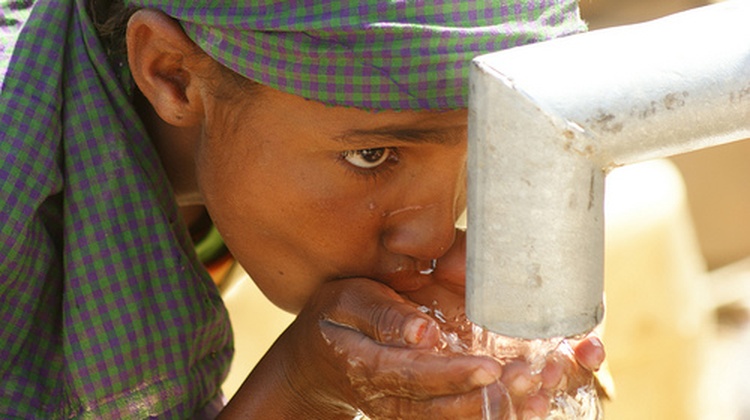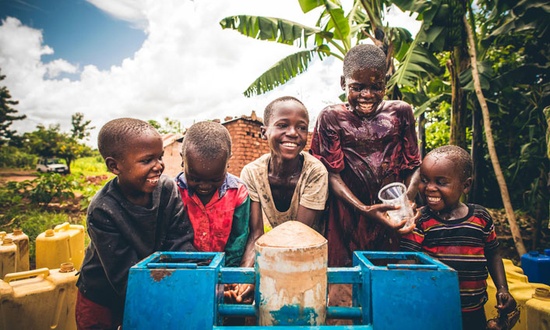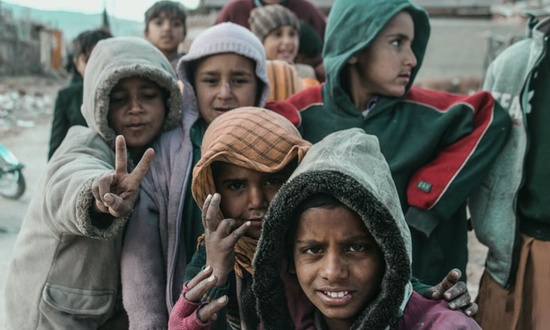In today’s blog we ask the question again: how can we as Christians help the most vulnerable people in the world? (See my previous blogs in the series we’re calling The Least of These.) This post focuses on those who lack access to clean drinking water and basic sanitation.
According to the World Health Organization, 884 million people lack access to safe drinking water, and 2.6 billion lack basic sanitation. Christians have a special responsibility (and privilege) to care for those affected, who are in desperate need of sanitation and salvation.
Access to clean water is one first step a community must take to overcome poverty. Children who spend their mornings fetching water often miss school. Also, drinking dirty water can infect children with preventable diseases that then keep them out of school.
More Information and Statistics (from Compassion.com)
 Approximately 1.8 million children die each year as a result of diseases caused by unclean water and poor sanitation. This is around 5,000 deaths a day.
Approximately 1.8 million children die each year as a result of diseases caused by unclean water and poor sanitation. This is around 5,000 deaths a day.- Diarrheal diseases can be reduced by more than 40 percent through the simple practice of washing hands with soap and water.
- Water-related diseases are the second biggest killer of children worldwide. Number one is acute respiratory infections, such as tuberculosis.
- Approximately 97.5 percent of the water on earth is saltwater. If all the world's water could fit in an average bucket, only 1 teaspoon would be drinkable.
- Nearly 90 percent of water-related diseases are due to unsafe water, sanitation and hygiene; and most victims are children in developing countries.
- The average person in the developing world uses a little more than 2.5 gallons of water each day for drinking, washing and cooking. Whereas the average person in the developed world uses 13 gallons per day only for toilet flushing.
Sources: www.who.int, www.wateraid.org, www.unicef.org
How Can You Get Involved?
Giving financially to improve sanitation in developing companies is one of the most effective ways to help. According to the World Health Organization, every $1 invested in improved sanitation translates into an average return of $9. Those benefits are experienced specifically by poor children and in the disadvantaged communities that need them most.
Providing clean water not only offers numerous physical benefits for people, but also opens the door for the gospel, so people can hear about Jesus, and quench their spiritual thirst: “Jesus answered, ‘Everyone who drinks this water will be thirsty again, but whoever drinks the water I give him will never thirst. Indeed, the water I give him will become in him a spring of water welling up to eternal life’” (John 4:13).
Organizations EPM Recommends Helping With Clean Water and Sanitation
“And whoever gives one of these little ones even a cup of cold water because he is a disciple, truly, I say to you, he will by no means lose his reward” (Matthew 10:24).
My thanks to former EPM staffer Julia Stager for assembling the facts and resources for this blog.
Photo credit: Girl drinking: Sacca via photopin cc | Boys with water: uncultured via photopin cc





